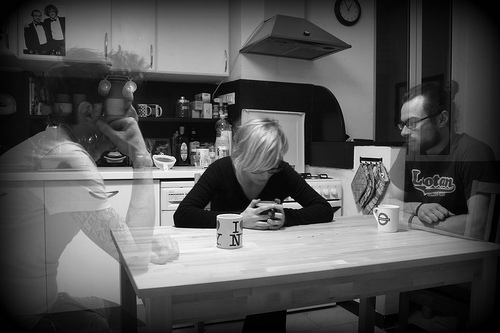Schizophrenia, which has a lifetime morbid risk of 7.2 per 1,000 people¹ and often begins in late adolescence to mid-adulthood, is a very serious brain disease often leading to inability to function in society, which results in high costs and economic pressure. However, with appropriate diagnosis and treatment, individuals with schizophrenia can have a great chance of regaining their ability to have a normal or close to normal life.
Theories as to the cause of schizophrenia focus on both biological and environmental factors. For instance, studies have shown genetic heritability of the disorder, due to the fact that it occurs in about 1% of the population but 10% in individuals with a first-degree relative with the disorder². Neurotransmitters like dopamine and glutamate are also implicated in the disease, and the brains of some people with schizophrenia have larger ventricles, less gray matter, and enhanced or reduced activity in various areas of the brain². Environmental influences implicated in the cause of schizophrenia include hypoxia (lack of oxygen to part of the body), infection, stress, and malnutrition in a pregnant mother, which could then affect the fetus. After birth, the influence of drugs like cocaine and alcohol can create psychotic-like symptoms and result in schizophrenia in some cases, and those who face adversity, isolation, or a hostile family environment are at a higher risk of developing the disorder.

Image credit: Marco Castellani
Symptoms of schizophrenia can be classified as either positive or negative, with positive symptoms meaning the presence of behavior not normally seen in the general population and negative symptoms meaning a more toned down, muted individual. Some positive symptoms include hallucinations (which can be visual, auditory, tactile, olfactory and gustatory), delusions, and disorganized speeh, cognition and movement. For example, the person may hear voices telling them that people are spying on them (auditory hallucination), they may feel like they are God (delusion of grandeur), and they may wear very heavy clothes in the middle of summer (disorganized cognition). Negative symptoms involve such things as lack of emotion and responsiveness (flat affect), alogia (lack of speech), anhedonia (lack of pleasure), asociality (uncaring about relationships), avolition (lack of motivation), poor memory, and inability to concentrate. These negative symptoms are often harder to treat than positive symptoms.
Schizophrenia is often treated through the use of antipsychotic medications and atypical antipsychotics, which are normally very effective in treating the positive symptoms of schizophrenia. Psychotherapies can also be used, like cognitive-behavioral therapy, family therapy, and group treatment, in order to help the individual understand the disease and how to manage it and cope in life.
Reference:
1. Bhugra, D. (2005). The global prevalence of schizophrenia. PLoS Med, 2(5), e151. http://www.ncbi.nlm.nih.gov/pmc/articles/PMC1140960/
2. National Institute of Mental Health (2009). What is Schizophrenia?. [ONLINE] Available at: www.nimh.nih.gov/health/publications/schizophrenia/index.shtml. [Last Accessed 9.12.2013].
© BrainMass Inc. brainmass.com April 19, 2024, 3:06 am ad1c9bdddf